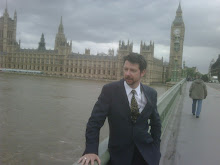My Daily Record column for today
When she goes – and that could be anytime between the next keystroke and Donald Trump leaving for the D-Day celebrations in June – there will, no doubt, be some sympathy of Theresa May.
It is fair to say she was dealt the worst hand of any incoming prime minister since Churchill took over from Chamberlain in the spring of 1940 as the German army advanced to the French coast.
But it is also true that May has done nothing since July 2016 to improve her own chances or that of the country she effectively stopped running many months ago.
She will not go down as the worst prime minister of the modern era. That booby goes to David Cameron, who gifted us this bitter legacy we all share.
As May said in what will be seen as her valedictory speech, moving “from the simplicity of the choice on the ballot paper to the complexity of resetting the country’s relationship with 27 of its nearest neighbours was always going to be huge”.
For her, it has proved impossible.
But the sentence sums up how a referendum harnesses a political curse on a generation. Having experienced two, most Scots wouldn’t wish another on any country or leader.
In her favour, May showed dogged resilience, bore relentless criticism in her stride, went beyond human exhaustion and remained wedded to her Christian sense of duty.
Those strengths were also weakness, demonstrating her inability to compromise, to dig in and fall silent when flexibility and reassurance were needed to lead.
Abba’s dancing queen was not fleet of foot enough even to avoid the slow lava flow that overwhelmed her. She will go down as the most incompetent diplomat and negotiator to cross the threshold of Downing Street as prime minister.
From the Lancaster House speech, where she ruled out the single market and freedom of movement, to the Charing Cross compromise, where she threw a kitchen sink full of concessions, she was a failure.
May was to deliver Brexit. Yesterday, morning, the death notice of her Withdrawal Agreement Bill was read out, or rather excluded from Commons business.
On the threshold of Downing Street, she said she would pursue the “burning injustices” of division and inequality that stalk Britain.
Yet in the week her fate was sealed, the United Nations accused May’s Government of presiding over a welfare system that has turned the country into a digital Dickensian workhouse for the poor.
She said she would defend the Union but called on the DUP, the political black and tans, as reinforcements.
She let Eurosceptic Unionists misrepresent the people of Northern Ireland and she completely misread the new European identity of the Irish.
She held Scottish nationalism at bay with a brittle, but so far effective “now is not the time”. But she showed no feel for this or any other part of Britain outside her own Oxfordshire church parish background.
May’s biggest task, which she so often put ahead of the national interest, was holding her beloved Conservative Party together.
Her ultimate failure is to leave her party and country a legacy that will rent it in twain from the top to the bottom.
His name is Boris Johnson. Brexit is a doomed enterprise for many reasons. The political foundations to assemble a coalition for any Brexit model are not in the parliament of no majorities. Changing Prime Minister does not change that. The misery continues.
There have been only 54 prime ministers in the three centuries of a United Kingdom. May is the sixth of my adult lifetime.
The office is the pinnacle of politics, a rare and incredibly difficult daily and lifetime feat that few can conduct well and even then, only for a limited time.
Her childhood ambition was beyond May’s abilities. Unable to accept reality, paralysed by her own decisions as much as by a hung parliament, she leaves us no further forward and she has no achievements to speak of.
There – I’ve reached the end of the column and she is still prime minister. She shouldn’t be for much longer.







